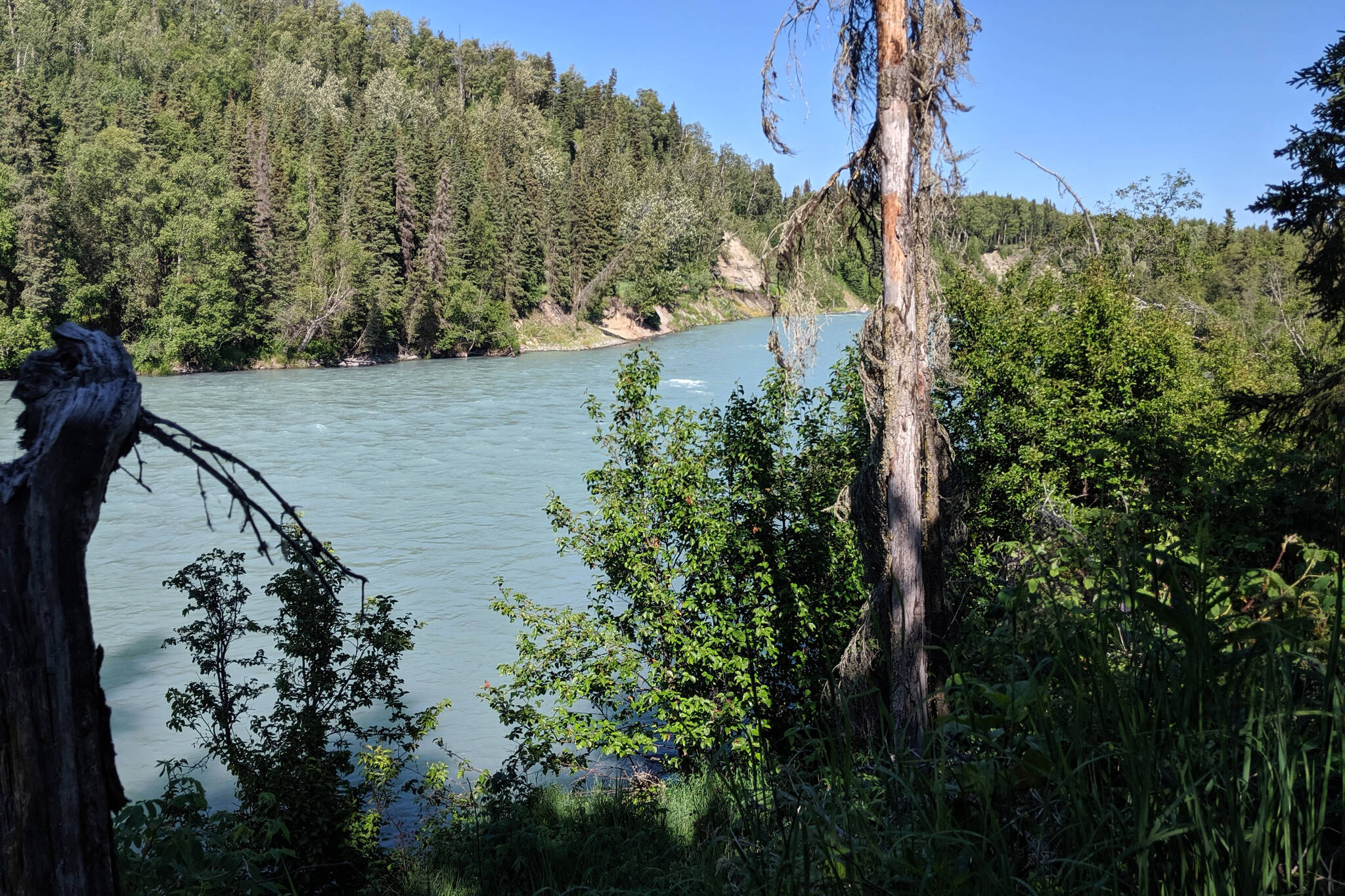I submitted a proposal with Patrick McCormike to be reviewed at the Board of Fish meeting that will take place in Homer Nov. 28-Dec. 1. Proposal No. 29 in the index is to prohibit the use of helicopters to transport anglers to select Cook Inlet waters in the flowing waters of Deep Creek, Anchor River, Stariski Creek, Ninilchik River and Kasilof River on the southern Kenai Peninsula.
Rivers on the lower Kenai Peninsula host some of the last best steelhead fishing accessible by road in North America.
The accessibility and productivity of these systems have led to a very intense fishery in which fish are caught and released multiple times. Historically low-intensity fishing areas on these streams (Deep Creek, Anchor River, etc.) are now being exploited by guided helicopter fishermen. The historically high-intensity fishing areas (near road crossings and public access points near the mouths of rivers) are still being pressured and crowding situations are occurring.
This has led to many user conflicts on the rivers, and in an attempt to avoid such situations anglers will hike for hours to gain access to areas where other walk-in anglers have not fished — only to have a helicopter land at their intended destination.
Furthermore, on any given day, low-flying helicopter traffic consistently bombards anglers in very popular, easy-to-access locations with the constant noise, ruining the experience for nearly every angler on the river.
People who rent helicopters can easily afford to fish more remote, less accessible parts of the state with fixed-wing aircraft or boat access or with helicopters accessing places that are not readily accessible by motor vehicle and foot.
A single helicopter operation can ruin the fishing experience for dozens of anglers. Nobody wants a helicopter flying over their head at low altitude all day.
Virtually every person we know who fishes for steelhead on the lower Kenai Peninsula has drastically changed their behavior and fishing traditions to avoid helicopter traffic. Many have been virtually landed on, having to avoid prop-wash and debris generated by helicopter landings.
Consistent low-flying helicopter traffic has been shown to have negative effects on wildlife and the lower Kenai Peninsula is no exception, with anecdotal reports of erratic moose behavior running from low-flying aircraft. Homeowners in the area also complain about constant noise from low-flying air traffic.
In Alaska, helicopters are not allowed to be used when hunting squirrels. Should we not treat steelhead, one of the most iconic fish in the world, and one of the most coveted fish species in Alaska with the same protection as squirrels?
If nothing is done, wealthy, privileged, non-Alaska residents who can easily afford to fish elsewhere (and not add pressure to systems already experiencing high numbers of walk-in anglers) will be allocated an unfair advantage to access the last best road accessible steelhead fisheries in North America.
Local people will continue to be pushed off the rivers, and those who work hard to catch fish will be thwarted by those with money.
Lastly, the steelhead of the lower Kenai Peninsula are fall-run fish, meaning that they enter freshwater in the fall, overwinter, then spawn in the spring before dying or returning to the saltwater.
Once they enter freshwater they rely on the energy reserves they have stored throughout the spring and summer to last them through the winter and into spring. While many steelhead are caught lower in the rivers and may remain in the lower sections throughout the winter many also push past the lower sections and “escape” the fishing pressure, overwintering peacefully in slow, deep holes further upriver in areas very seldom accessed by walk-in anglers.
Use of helicopters to hop from hole to hole day in and day out are repeatedly pressuring fish in areas that have historically not received pressure. Clients of these guided helicopter trips are catching and releasing many steelhead that would otherwise not have encountered intense angling pressure besides the areas close to lower angler access points as they migrated past. It is known that catch and release fishing is not mortality free. Some fish released in seemingly good condition will eventually die as a result of stress or injury incurred during the angling process.
We believe that the continuation of high angling pressure via guided helicopter fishing will detrimentally impact the reproductive fitness and population of steelhead of the lower Kenai Peninsula.
Ryan Pallister is a born-and-raised Alaskan who has spent decades fishing and exploring the Kenai Peninsula.

